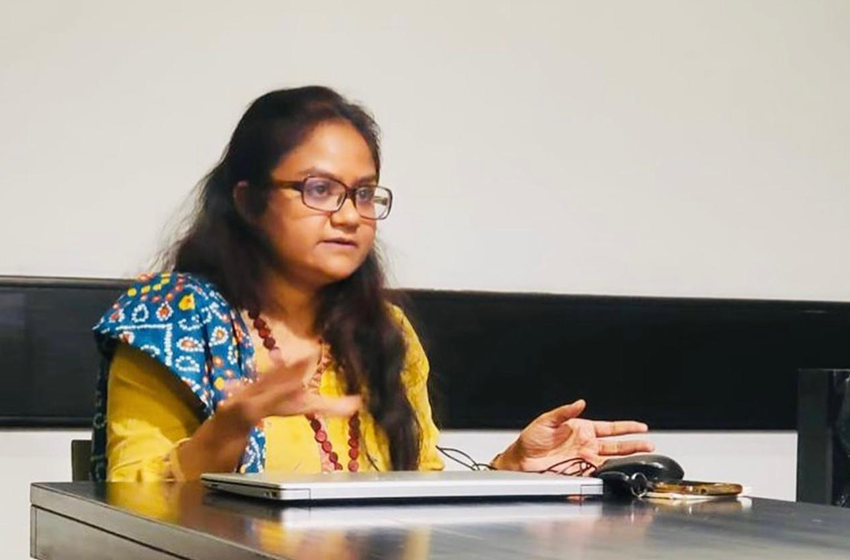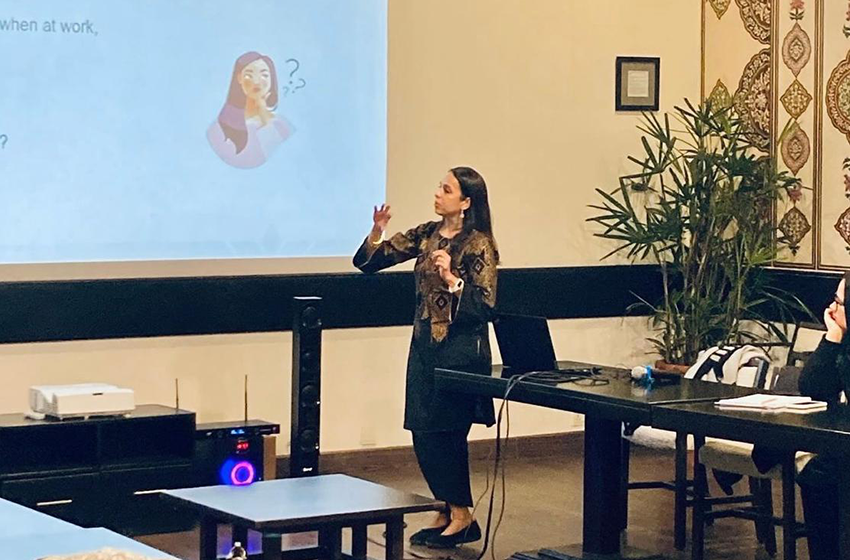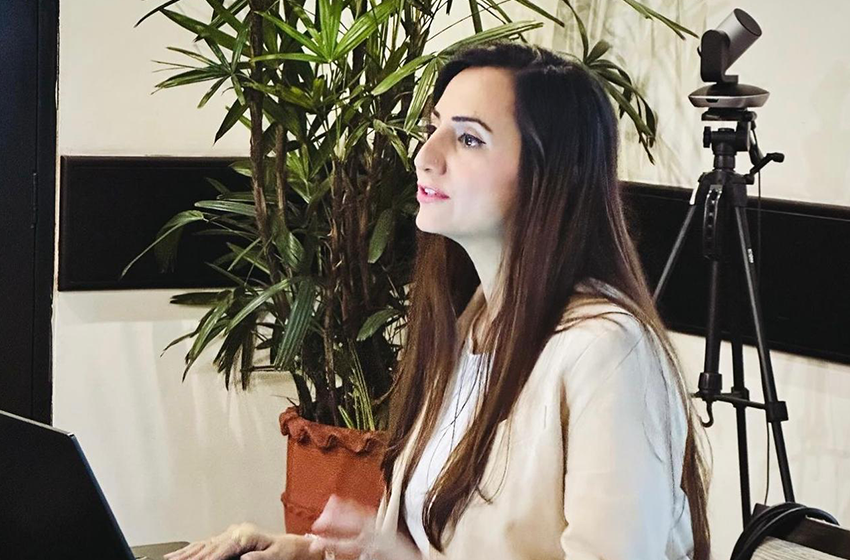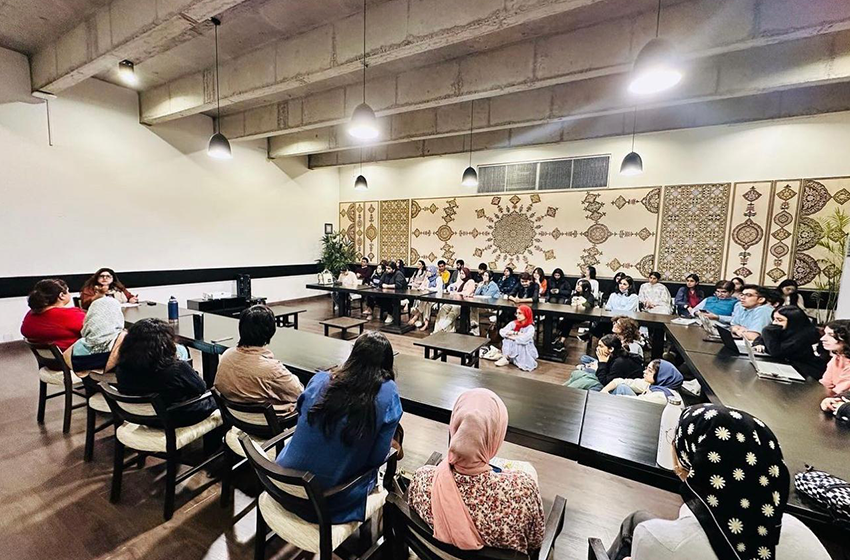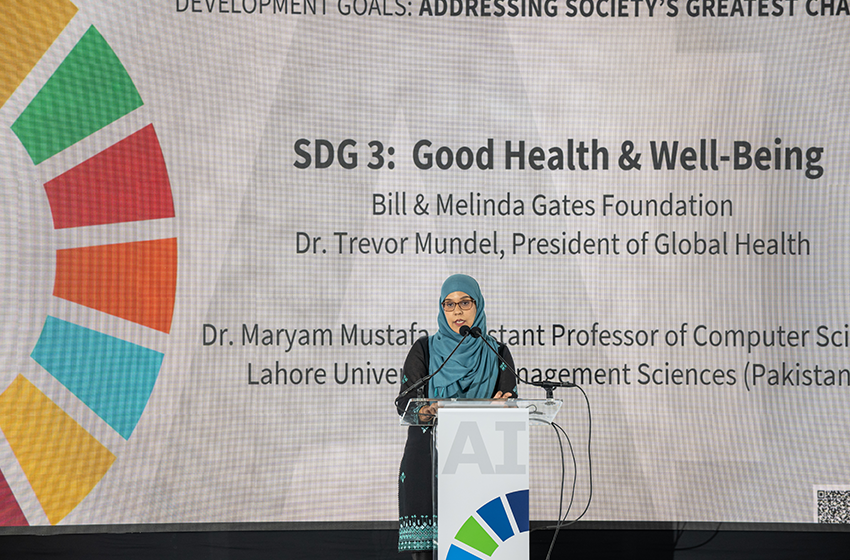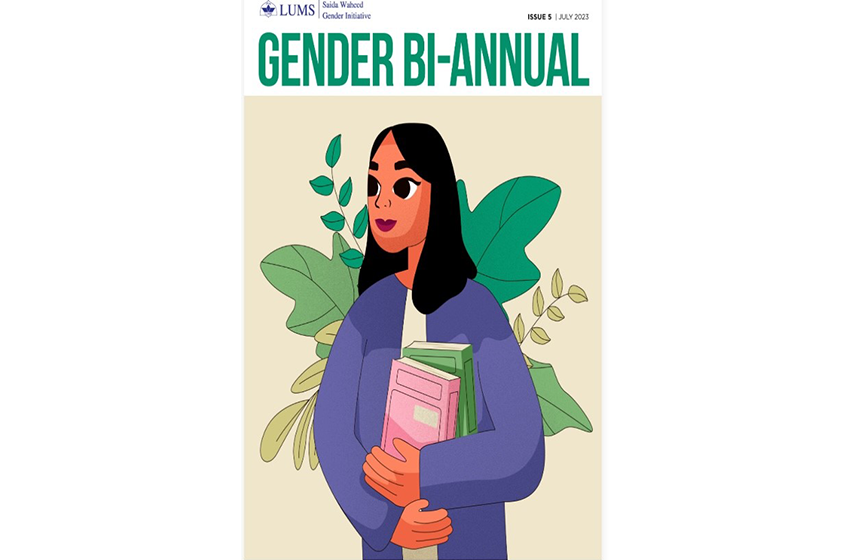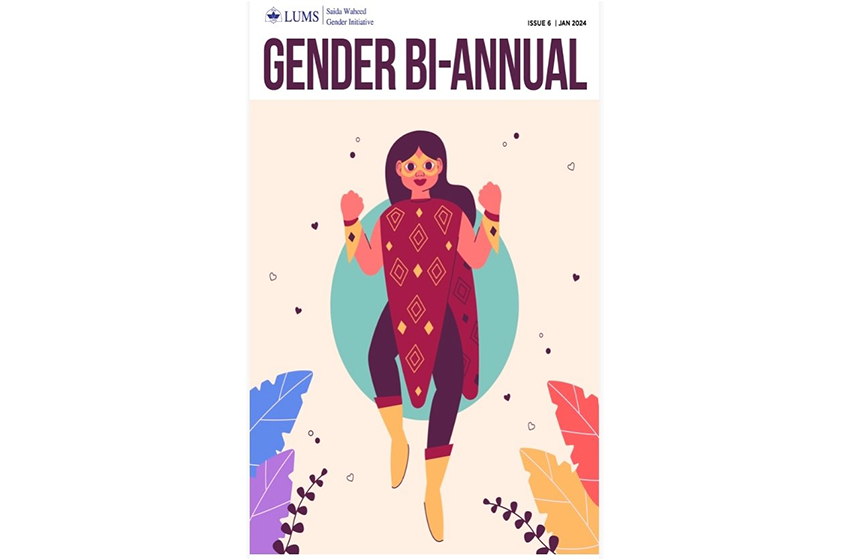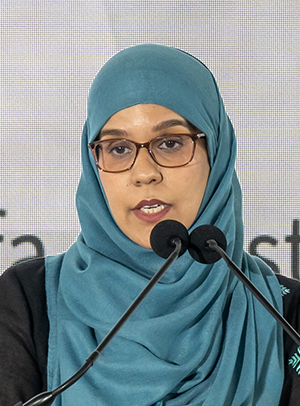
Director in Focus
Dr. Maryam Mustafa, Director, Saida Waheed Gender Initiative (SWGI), was invited to present her research on technologies for women’s maternal health at the 78th United Nations General Assembly in New York as part of the event on ‘Artificial Intelligence for Accelerating Progress on the Sustainable Development Goals: Addressing Society’s Greatest Challenges’.
One of the greatest challenges Pakistan faces to improve maternal health outcomes is a lack of digital medical records, which makes it challenging for doctors to provide accurate diagnoses, follow up, or contextualised care.
Dr. Maryam has won a Grand Challenges in AI grant to create a conversational AI assistant to make it easier to collect digital health records, without the barriers of cost, time, training, and access to equipment. Medical data is collected through these records, as well as data on social determinants of health factors affecting pregnancy. Dr. Mustafa’s work has endeavoured to create these digital medical records for women coming from peri urban and rural areas to reduce maternal mortality.
Talks and Events
The Saida Waheed Gender Initiative believes in platforming interdisciplinary work by both academics and practitioners. We are guided by an intersectional approach to gender-based research and gender justice, therefore learning through all quarters is imperative for us. The Centre organised thirteen conversations this year which were a mix of talks and workshops.
From Women’s Action Forum to Aurat March: the Personal and the Political by Nighat Said Khan, founding member of Women’s Action forum and Executive Director ASR resource centre (in collaboration with MHRC)
Rebuilding Community: Displaced Women and the Making of a Shia Ismaili Muslim Sociality, a book talk by Dr. Shenila Khoja-Moolji, the Hamad bin Khalifa al-Thani Associate Professor of Muslim Societies at Georgetown University
Navigating Online Harms and Gendered Disinformation in Pakistan, a workshop by the Digital Rights Foundation, a registered research-based advocacy NGO focusing on ICTs to support human rights, democratic processes, and digital governance
Climate Injustice and Land Grab: A Look at Gendered Impacts of Oppression by Abira Ishfaq, a human rights activist, legal educator, and visiting faculty member at the Institute of Business Administration, Karachi
Desi Futurisms: New and Old directions in Identity, Indigeneity, and Feminism by Dr. Maria Amir, Teaching Fellow at the Mushtaq Ahmad Gurmani School of Humanities and Social Sciences (MGSHSS), LUMS
Representation: A Study of Gender Quotas in the National Assembly of Pakistan by Dr. Ameena Zia, a Professor of Political Science and International Studies at Brevard College in Asheville, NC
Navigating through Double Discriminations at Workplaces: Experiences of Minority Women in Pakistan by Dr. Ayra Indrias Patras, Assistant Professor at Forman Christian College University, Lahore
Archives of Dissent: Caste, Sexuality, Protest by Dr. Anjali Arondekar, Professor of Feminist Studies, and Founding Director, Center for South Asian Studies, University of California, Santa Cruz
Slaying the Hydra: Tackling Honour Killings in Pakistan by Hiba Akbar, Visiting Assistant Professor at the Shaikh Ahmad Hassan School of Law, LUMS
A Conversation with Dr. Saveera Parkash, the first minority candidate to run on a general national assembly seat
Productive vs. Reproductive Work: Rethinking the Relationship by Dr. Hadia Majid, Associate Professor and Chair of Economics at LUMS
Collecting Earth by Sobia Zaidi, an interdisciplinary artist and teacher
Women’s Agency and Marriage Norms by Dr. Uzma Afzal, Assistant Professor at MGSHSS, LUMS
Research
SWGI offers small grants for faculty research and student-led research that use gender or sexuality as a major analytical tool in their work. This academic year we have funded eight projects.
Student Grantees of the 2023-24 cycle:
Investigating Gender-Based Wage Differences in Pakistan: A Focus on Negotiation Practices by Aamna Amir, Ayla Zeeshan, Khadija Noor, Sara Arif and Rida Khalid
Women’s Print Cultures in Pakistan: The Making and Unmaking of ‘Muslim’ Womanhood in Urdu Digests by Areej Akhtar
From Baag-e-Husn to Gandi Gulley: The Evolution of Lahore’s Sex Work Bazaar by Hubba Shahzad and Hira Nadeem
The Orange Line Metro Train and Working Women’s Mobility by Sana Murtaza and Zainab Ashraf
Evaluating the Role of Reserved Seats in Presenting Gender-Based Legislation by Owais Sabri
Queer Affective Worldings: Looking at Khawajasira Performativity by Syed Ehtesham and Hassan Mirza
At the Junction of Class and Gender in Pakistan by Haniya Rehman and Saboor Ahmed
Exploring Desire by Aiza Nadeem
Gender Bi-Annual
SWGI released the fifth and sixth issue of its Gender Bi-Annual. The fifth issue featured a diverse set of voices from across multiple areas of work. Our focus was pulled towards a myriad of issues that inform gendered life in Pakistan. Some pieces pushed us to peer into our historical trajectories of gender marginalisation, while others push us to question gendered existences in relation to ourselves and others.
The sixth issue brought together experiences and learnings across multiple disciplines. Speaking on issues of motherhood and work, our pieces reflected on the conflicts inherent in balancing these roles as well as the biases faced particularly by women. Through their pieces, our contributors then underscored that the many pulls on women's time while creating burdens, present opportunities too.


